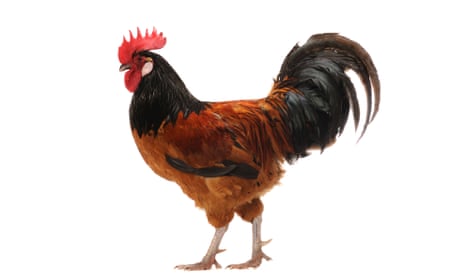Romance writers around the world can breathe a sigh of relief after a US court ruled that they can continue to use the adjective “cocky” in their book titles, after one author attempted to stop other writers from using the word.
In September 2017, self-published author Faleena Hopkins filed a trademark claim for the word “cocky” in relation to a romance novel series, which was registered by the US Patent and Trademark Office in April 2018. Only series can be registered as trademarks, not individual titles, and common words can’t be registered at all, unless the public associates it with a particular use.
In May, several romance authors reported receiving letters from Hopkins asking them to stop using the word in their titles and requesting that they change them. Hopkins, according to the Authors Guild, later “tried to block the sale of books by other romance writers that included the word”. She then applied for a preliminary injunction and a temporary restraining order to prevent the publication of a collection of stories by various authors, Cocktales: The Cocky Collective, which was written as an act of protest against Hopkins’s trademark.
Her lawsuit was filed against Tara Crescent, author of another book series that used the word “cocky”, the lawyer Kevin Kneupper, who had filed a legal challenge to have Hopkins’s trademark in “cocky” cancelled, and Cocktales’s publicist Jennifer Watson.
The Authors Guild and Romance Writers of America joined forces to provide Crescent with legal assistance and “defend the principle that no one should be able to own exclusive rights to use a common word” in book titles. They argued that “countless romance novels employed ‘cocky’” in their titles well before Hopkins laid claim to it, that “no one should hold a monopoly on cocky”, and that “cockiness (in all its permutations) remains as prevalent in romance novels as the use of stunning, scantily clad models on their covers”.
It would be, they wrote, “like an author claiming trademark rights in the word death as a series title for murder mysteries and suing anyone who used that word in the title of their crime stories”.
“Any order that restricts creative expression in favour of promoting the tenuous (at best) purported rights of a single author is simply contrary to the public interest in freedom of expression,” wrote the guild, adding that it “seldom” litigates for individual authors, but felt in this case that it was “an important issue for authors generally”.
In the case, heard in a New York court on Friday, judge Alvin Hellerstein described romance readers as “sophisticated purchasers” unlikely to be confused between different authors’ books, found that cocky was a “weak trademark”, and denied Hopkins’s motion for a preliminary injunction and temporary restraining order to stop the publication of books with the word “cocky” in the title. Kneupper, who was removed from the case, will be allowed to continue his legal challenge to Hopkin’s trademark in relation to the word’s use in series titles.
“Authors should be able to express themselves in their choice of titles,” said the Authors Guild in a statement after the hearing. “A single word commonly used in book titles cannot be “owned” by one author. This is especially true when, as here, the word has already been in use by other authors in titles for years.”
